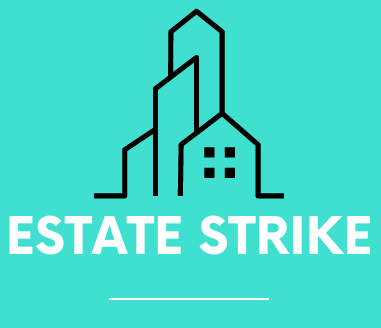Renting a Home
Renting a home is a significant decision that can greatly affect your lifestyle and finances. Whether you’re a first-time renter or looking to move to a new place, this comprehensive guide will walk you through the essential steps and considerations when renting a home.
-
Determine Your Budget:
- Calculate your monthly income and expenses to determine how much you can comfortably allocate to rent.
- Don’t forget to consider utilities, maintenance costs, and other potential fees when setting your budget.
-
Location Matters:
- Explore different neighborhoods and consider proximity to work, schools, public transportation, and amenities.
- Research crime rates, school districts, and the overall safety and livability of the area.
-
Type of Property:
- Decide on the type of property that suits your needs—apartment, house, condo, or townhouse.
- Consider factors like the number of bedrooms, bathrooms, and square footage.
-
Rental Market Research:
- Browse online listings on platforms like Zillow, Craigslist, or real estate agency websites.
- Pay attention to rental rates in your preferred area and property type.
-
Inspect the Property:
- Schedule viewings of potential rental properties to inspect them thoroughly.
- Look for signs of damage, safety issues, and overall cleanliness.

-
Lease Agreement:
- Read and understand the lease agreement carefully before signing.
- Pay attention to lease duration, rent amount, security deposit, maintenance responsibilities, and any special terms or clauses.
-
Tenant Rights and Responsibilities:
- Familiarize yourself with your rights and responsibilities as a tenant according to local laws.
- Understand the eviction process and how to report maintenance issues.
-
Security Deposit:
- Know the rules regarding security deposits, including how much can be charged, how it will be held, and under what circumstances it will be returned.
-
Utilities and Services:
- Inquire about which utilities (water, gas, electricity, internet, etc.) are included in the rent.
- Set up necessary utility accounts in your name.
-
Insurance:
- Consider renter’s insurance to protect your personal belongings in case of theft, fire, or natural disasters.
-
Moving In:
- Document the property’s condition with photos and notes before moving in.
- Communicate with the landlord regarding any pre-existing issues.
-
Communication with Landlord:
- Establish clear lines of communication with your landlord for maintenance requests and inquiries.
-
Rent Payment:
- Understand the rent payment schedule and method accepted by the landlord.
- Ensure you pay rent on time to avoid late fees and potential eviction.
-
Renewal or Moving Out:
- Decide whether to renew the lease or move out at the end of the lease term.
- Communicate your decision to the landlord well in advance.
-
Respecting the Community:
- Be a responsible and respectful neighbor by following community rules and regulations.

Making Home Rental Easy: A Step-by-Step Guide
Renting a home used to be a daunting and time-consuming process, but thanks to advancements in technology and changing market dynamics, it’s easier than ever to find and secure your dream rental property. In this blog, we’ll explore the various ways renting a home has become more straightforward and convenient in today’s digital age.
-
Online Property Listings:
- The internet has revolutionized the way we search for rental properties. You can now browse through thousands of listings from the comfort of your home.
- Websites and apps like Zillow, Apartments.com, and Realtor.com offer user-friendly interfaces and filters to help you narrow down your search.
-
High-Quality Photos and Virtual Tours:
- Many listings now include high-resolution photos and even virtual tours, giving you a detailed view of the property before scheduling a physical visit.
- This saves time and effort by allowing you to rule out properties that don’t meet your criteria.
-
Advanced Search Filters:
- Online platforms allow you to specify your preferences, such as the number of bedrooms, bathrooms, rent range, and location.
- This precision helps you find properties that align with your needs.
-
Instant Communication:
- Contacting landlords or property managers has never been easier. Most listings provide contact information, allowing you to inquire about availability and ask questions promptly.
- Email and messaging apps enable quick and efficient communication.
-
Online Applications and Document Submission:
- Many landlords now accept online rental applications and document submissions.
- You can upload your application, income verification, and references digitally, simplifying the application process.

-
Credit and Background Checks:
- Landlords often use online services to conduct credit and background checks.
- This speeds up the screening process and provides transparency for both parties.
-
E-Signing Leases:
- Electronic signatures have made it possible to sign leases and rental agreements from anywhere, eliminating the need for physical paperwork.
- This convenience streamlines the final stages of securing a rental property.
-
Secure Online Payments:
- Many landlords now accept online rent payments through secure platforms.
- This eliminates the need for writing checks and provides a digital record of your payments.
-
Review Platforms:
- Before committing to a rental property, you can read reviews and ratings from previous tenants on various websites.
- This insight can help you make an informed decision.
-
Automated Reminders and Notifications:
- Rental platforms often offer reminders for rent payments, lease renewals, and maintenance requests.
- This helps you stay organized and on top of your responsibilities as a tenant.

Conclusion:
Renting a home can be a smooth and positive experience when you approach it with careful consideration and preparation. By following this comprehensive guide, you’ll be better equipped to find the right rental property and navigate the rental process successfully. Remember that open communication with your landlord and understanding your rights and responsibilities as a tenant are key to a harmonious landlord-tenant relationship.
